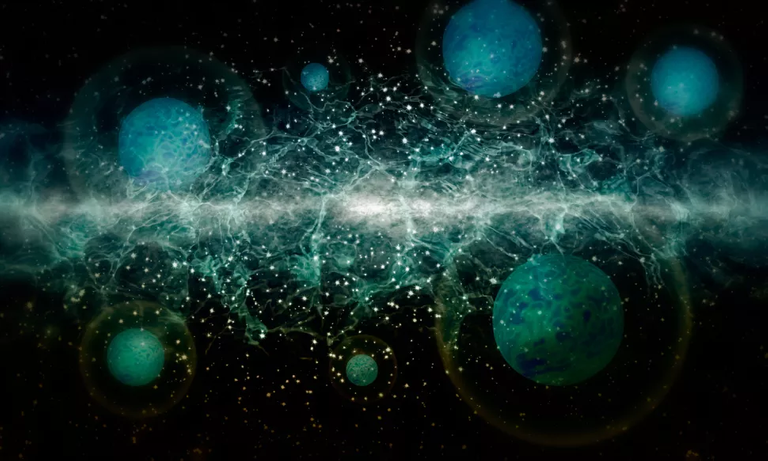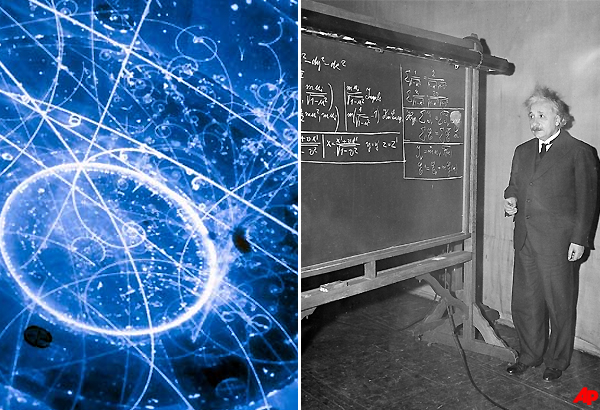Are Neutrinos faster than speed of light?
Scientists have been researching the smallest atomic particle for many years in order to find out the origin of the universe. They believe that it exists not only everywhere and in the universe, but that it is the real cause of the existence of the universe. Three years of experiments have shown that it is faster than the speed of light. This study invalidates Einstein's theory of relativity, on which modern science stands.

To this day it is said that the fastest thing in the universe is light, which no one can find. This theory is considered the basis of modern science. Today's modern physics, which deals with the structure of the atom and the mysteries of the universe, is further working on Einstein's theory of Relativity. He proposed this theory in 1905, according to which energy and matter could be converted into each other.
According to his theory, the speed of light is of primary importance, which is said to travel at a speed of 186,000 miles per second. Light is one of the most important energies of the universe and it is light that makes us realize the existence of things in this universe.
In modern physics, distances and speeds between stars, planets and galaxies are determined by the speed of light, but now scientists at the world's largest laboratory researching physics and the creation of the universe say that for three consecutive years, their recent experiments have shown that the speed of neutrinos is faster than the speed of light.
Neutrinos are the shortest component of the atom. It contains a very small amount of matter. It has no negative or positive electrical charge. It passes through everything without realizing it.
Neutrinos are everywhere in the universe. Neutrinos are emitted from the sun along with light, heat and other radiation, and this process continues in everything in the universe that produces energy and radiation. The experiments that took place over the last few years at the largest laboratory near Geneva for research into the creation of the universe, have the idea that they are also present in the smallest unit of the universe.
The scientists conducting research at the CERN laboratory, announced on September 23, 2014, that experiments had shown that the speed of neutrinos was greater than the speed of light, although the difference is very small.
During the experiment, neutrinos were sent to the Gran Sasso laboratory, 700 kilometers from the CERN laboratory in Italy, and their speed was measured. The neutrino beam reaches its destination 60 nanoseconds earlier than the light. One billionth of a second is called a nanosecond. Scientists have repeatedly tested their findings, and after much satisfaction and confirmation, these results were released. The research has been put on the web for study and further research by scientists around the world.
These findings do not appear to have had a significant effect on general scientific practice, but scientific laws regarding the speed and time of light may need to be re-examined. Like speed, time is an important fact of the universe. There is a strong correlation between speed and time, as speed increases, time slows down in the same proportion.
For example, if a person embarks on a spacecraft whose speed is equal to one tenth of the speed of light, then that person will be ten times older than the people living on earth. According to this principle, when an object reaches the speed of light, the speed of time becomes zero. As if time stops. Since this is not scientifically possible, scientists have so far said that nothing can reach the speed of light, but with this new discovery, the concept of a time machine has also been called into question.

Neutrinos continue their journey even after reaching speeds greater than the speed of light, and the discovery of a fast-moving atomic particle of light is one of the most important breakthroughs in the scientific world, breaking the spell of Einstein's theory of relativity.
But nothing is final in science, and the foundations of the lofty edifice of modern science today lie in the graves of scientific ideas of the past.
Thank you for reading! Stay Safe!👋😌
Thanks for your article. The references you site, though, say that the observation of neutrino's traveling greater than light speed was due to a technical error. Overzealous scientists rushed to report the finding than to make sure the results were accurate.
@scholaris.pob is totally right. No, neutrinos don't go faster than light. This was a faulty connection in the OPERA (that's the name of the experiment conducted) detector.
This was however a very nice moment of my career, trying to understand how this cold be theoretically sound (I didn't publish anything on this subject, however).